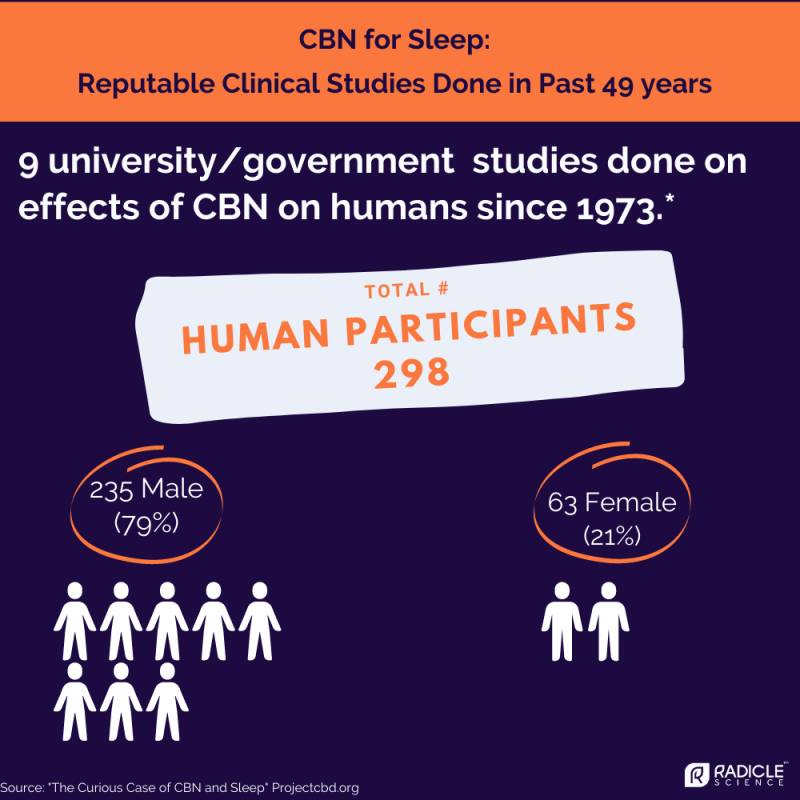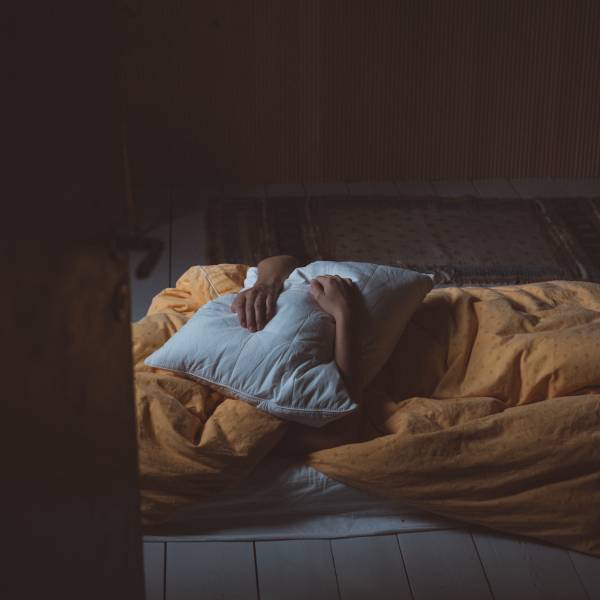Does CBN, whether used alone or in combination with another cannabinoid help for sleep deprivation?

With all the years of accepted wisdom about CBN (short for cannabinol) for sleep, the team at Radicle Science started challenging this assumption, because that’s what we do. This naturally got us excited about doing a large scale clinical study with CBN (more on that later) because we just couldn’t find a large or diverse enough dataset and/or body of research to be convinced either way.
In this post, we’ll summarize the most respected studies on CBN for sleep out there, and explain what we’re doing, right now, to help us all get the answers we want and how you can join us.

CBN for sleep…wait…what’s CBN good for?

Cannabinol is a minor cannabinoid, in fact, the first ever to be extracted out of the cannabis plant (the plant family that includes both hemp and marijuana).
You can extract CBN oil from a cannabis plant if you have the correct high tech equipment, or you can just smoke old dry weed. If you store your weed in the light, the THC (part that gets you high) starts to break down and loses its potency. What arises from that breakdown is CBN. As a matter of fact, the concentration of CBN in any hemp or marijuana strain will increase over time due to that natural breakdown of THC. Wondering about the legality? CBN is not a scheduled controlled substance in the U.S. as long as it’s extracted from hemp.
Who says CBN is good for sleep?
Pretty much anyone who manufactures CBN. And anecdotal reports. Other than that, the current, validated science really doesn’t support it. You don’t have to take our word for it. Below, we’ve created an infographic of all the reputable cannabinol studies that Matthew Elmes, PhD, wrote recently about for ProjectCBD.org. It’s a great article, so please read if you want to go more in depth.

Info Source: Projectcbd.org
Who’s doing clinical studies on cannabinoids for sleep?
We are! We need to find out more about whether or not CBD and/or other similar cannabinoids help for sleep, using a large (not just 298 people), diverse set of people (not just a majority being men). That’s just what we’re doing at Radicle Science, starting in April. We need about 2000 participants to volunteer for our Radicle Sleep study series, which will examine the effects of cannabinoids like CBD on sleep. We send volunteers who qualify during the enrollment process a legal, cannabinoid-containing product (or a placebo) at no cost to them.
Let’s find out whether the rumors are true, and learn things like what dosage of cannabinoid for sleep is most effective, what cannabinoids used together in certain combinations impact sleep, and more. If you want to participate, please sign up!


